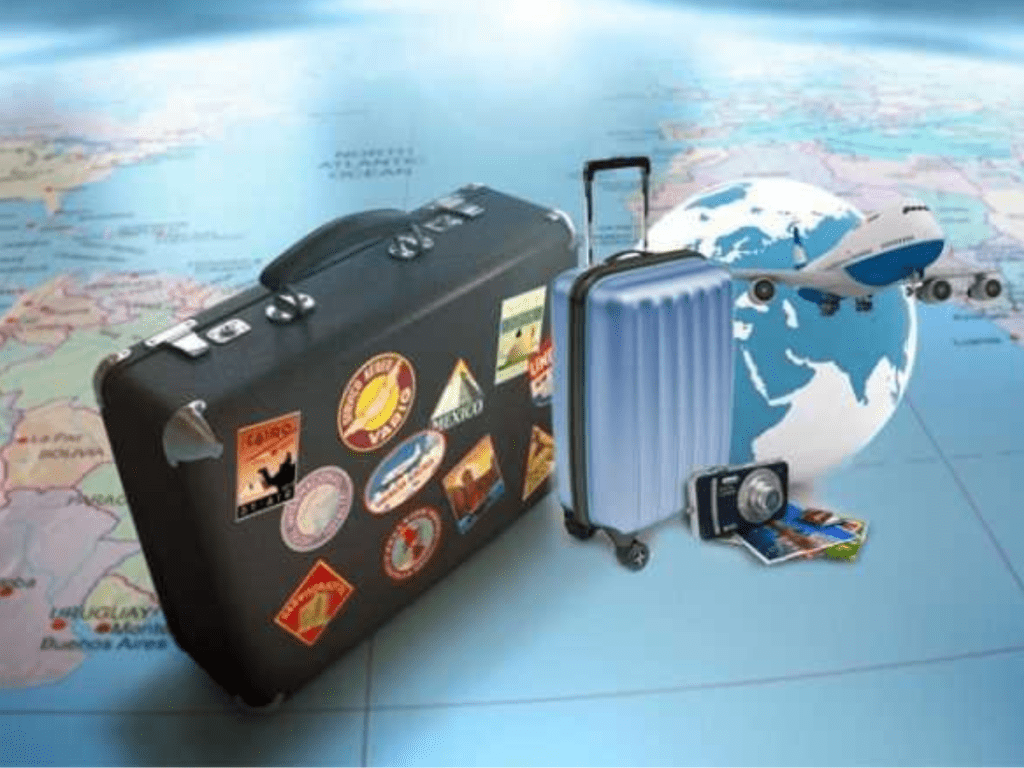Introduction
Traveling can be one of the most exciting and enriching experiences in life, whether you’re exploring new cultures, embarking on a business trip, or taking a well-deserved vacation. However, like any adventure, it comes with its set of challenges. One of the most frustrating and inconvenient issues travelers often face is lost luggage. While airlines do their best to ensure your belongings reach you safely, lost luggage can still happen due to delays, misdirected baggage, or logistical errors. This is where travel insurance comes into play, offering peace of mind and protection when things go wrong. In this article, we will explore the role of travel insurance in protecting against lost luggage, how it works, and why it’s an essential consideration for any traveler.
Understanding Travel Insurance
Travel insurance is a type of insurance policy designed to cover various risks and unforeseen events that may occur during travel. It can provide coverage for a wide range of issues, including trip cancellations, medical emergencies, flight delays, and lost or damaged luggage. When it comes to lost luggage, many travel insurance policies offer reimbursement or compensation to help travelers recover the value of their lost items or assist with the cost of necessary purchases while waiting for the luggage to be located.
Travel insurance is available in various forms, with different levels of coverage depending on the insurer and the type of policy you choose. Basic policies may only offer minimal coverage for lost luggage, while more comprehensive plans can cover a range of scenarios, including theft, damage, and delayed baggage.
Why Lost Luggage Is a Common Travel Issue
While airlines and airports have systems in place to track and manage luggage, lost luggage remains a significant issue for travelers worldwide. According to the 2021 “Lost and Misrouted Baggage” report from the International Air Transport Association (IATA), airlines reported handling approximately 25 million mishandled bags globally, a figure that represents about 6.5 bags per thousand passengers. These numbers highlight the frequency of lost luggage incidents, which can occur due to several reasons, including:
- Misdirected luggage: Baggage may be sent to the wrong airport or plane due to administrative errors, incorrect tagging, or last-minute gate changes.
- Delayed baggage: Luggage may arrive late due to flight delays, missed connections, or other travel disruptions that prevent the bag from being loaded onto the correct plane.
- Theft: Luggage can be stolen at airports, during layovers, or even from hotel rooms, especially if the bag is left unattended or appears valuable.
- Damage: Sometimes, luggage is damaged in transit, either due to rough handling or accidents during loading and unloading.
While airlines typically offer some form of compensation or assistance for lost luggage, it is often limited. Travelers are usually required to file a claim, and compensation can be slow to arrive. This is where travel insurance steps in to provide financial protection and reduce the stress associated with lost baggage.
How Travel Insurance Protects Against Lost Luggage
Travel insurance policies that include lost luggage coverage typically offer two types of protection: baggage loss and baggage delay. These two types of coverage address different scenarios and can help travelers recover from the inconvenience of lost or delayed luggage.
1. Baggage Loss Coverage
If your luggage is lost or irretrievably delayed, baggage loss coverage can help you recover the value of your belongings. In most cases, travel insurance policies will reimburse you for the cost of replacing essential items, such as clothing, toiletries, or other personal effects, that were in the lost luggage. However, coverage limits may apply, and there are often exclusions regarding high-value items such as electronics, jewelry, and fragile items.
To make a claim for lost luggage, travelers generally need to provide proof of loss, such as a baggage claim receipt from the airline, a police report if the luggage was stolen, and a list of the items in the bag. The insurer will then assess the claim and determine the appropriate reimbursement amount based on the value of the lost items and the terms of the policy.
2. Baggage Delay Coverage
Baggage delay coverage is designed to provide financial assistance if your luggage is delayed for a specified period, typically between 6 to 24 hours, depending on the policy. This coverage allows you to purchase necessary items, such as clothing, toiletries, and other essentials, while you wait for your bags to arrive.
In some cases, baggage delay coverage may also provide reimbursement for hotel accommodations or meals if your luggage is delayed overnight and you are unable to proceed with your trip as planned. The amount of coverage can vary depending on the insurer, but it generally covers reasonable expenses incurred due to the baggage delay.
Baggage delay coverage is particularly valuable when traveling internationally or on long-haul flights, where delays are more common due to multiple flight connections or logistical challenges. Travelers should keep receipts for any purchases made during a baggage delay to submit a claim for reimbursement.
Benefits of Travel Insurance for Lost Luggage
Travel insurance can offer several important benefits when it comes to protecting against lost luggage, including:
1. Peace of Mind
One of the most significant advantages of having travel insurance is the peace of mind it provides. Knowing that you have coverage for lost or delayed luggage allows you to focus on enjoying your trip rather than worrying about the possibility of losing your belongings. This is especially important for travelers who are carrying essential items or valuable possessions, such as prescription medications, electronics, or sentimental items.
2. Quick Assistance
In the event of lost luggage, travel insurance can provide faster assistance than relying solely on the airline or other third parties. Insurance providers often have 24/7 customer support to help travelers navigate the claims process, making it easier to get the help you need when you need it most.
3. Coverage for Essential Items
Travel insurance can provide coverage for essential items, allowing travelers to purchase clothing, toiletries, and other necessities while waiting for their luggage to be located. This is especially important if your trip involves business meetings, weddings, or other events where you need to have specific attire or equipment.
4. Financial Protection
Without travel insurance, the financial burden of lost luggage can fall entirely on the traveler. While airlines may reimburse you for a portion of the value of your lost items, the compensation is often minimal, and it may take weeks or even months to receive a payout. Travel insurance provides financial protection by reimbursing travelers for the value of lost items or helping them cover the cost of necessary purchases during a baggage delay.
5. Flexibility in Coverage
Many travel insurance policies allow travelers to customize their coverage based on their specific needs. For example, if you’re carrying high-value items like expensive electronics or jewelry, you may be able to add additional coverage to protect those items in case of loss, theft, or damage. This flexibility allows you to tailor your policy to match the value of your belongings.
How to Choose the Right Travel Insurance for Lost Luggage
When selecting a travel insurance policy that includes lost luggage coverage, it’s important to consider the following factors:
1. Coverage Limits
Review the coverage limits for both baggage loss and baggage delay. Make sure the policy provides sufficient coverage for the value of your belongings. If you’re carrying expensive items, consider opting for a higher coverage limit or additional coverage for high-value items.
2. Exclusions and Restrictions
Carefully read the policy to understand any exclusions or restrictions related to lost luggage coverage. For example, some policies may exclude coverage for certain items, such as electronics or jewelry, or may impose a maximum payout limit for lost items. Be sure to check for any requirements, such as the time frame for reporting lost luggage or the need for specific documentation.
3. Claims Process
Consider the ease of the claims process. Look for an insurance provider with a reputation for efficient claims handling and clear instructions for submitting a claim. The last thing you want is to deal with unnecessary delays or confusion when trying to recover the value of your lost items.
4. Additional Benefits
Some travel insurance policies offer additional benefits, such as trip interruption coverage, emergency medical assistance, or coverage for trip cancellations. These additional benefits can enhance the overall value of the policy and provide further protection for your trip.
5. Cost of the Policy
Finally, consider the cost of the travel insurance policy in relation to the coverage provided. While it’s important to have sufficient coverage, it’s equally important to find a policy that fits your budget. Compare different insurers and policies to find the best value for your specific needs.
Conclusion
While lost luggage can be a frustrating and stressful experience, travel insurance offers a valuable safety net for travelers. By providing coverage for lost or delayed luggage, travel insurance ensures that you have the financial support and peace of mind needed to handle the situation effectively. Whether you’re embarking on a business trip or a leisurely vacation, having travel insurance with baggage coverage is an investment that can save you time, money, and stress in the event of a mishap. Be sure to review your options carefully, understand the coverage limits and exclusions, and choose a policy that provides the best protection for your needs. With the right coverage in place, you can travel with confidence, knowing that you’re protected against one of the most common travel inconveniences.

